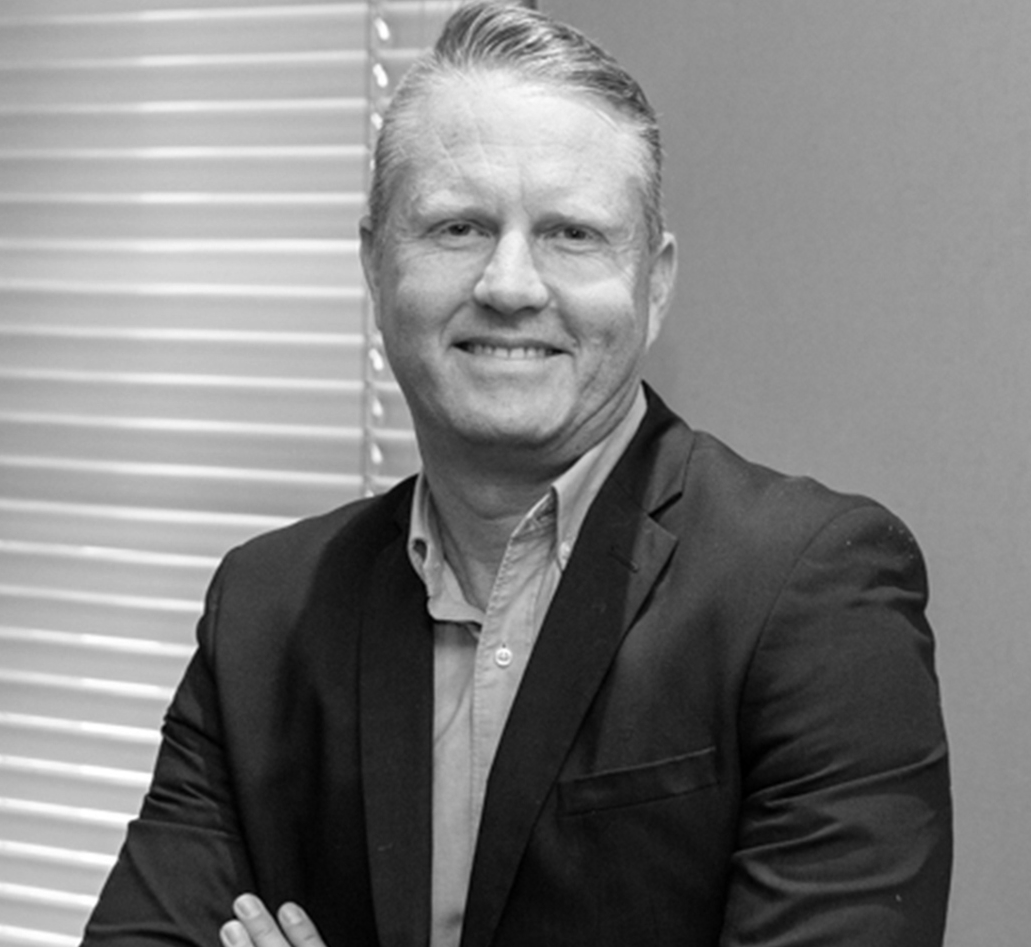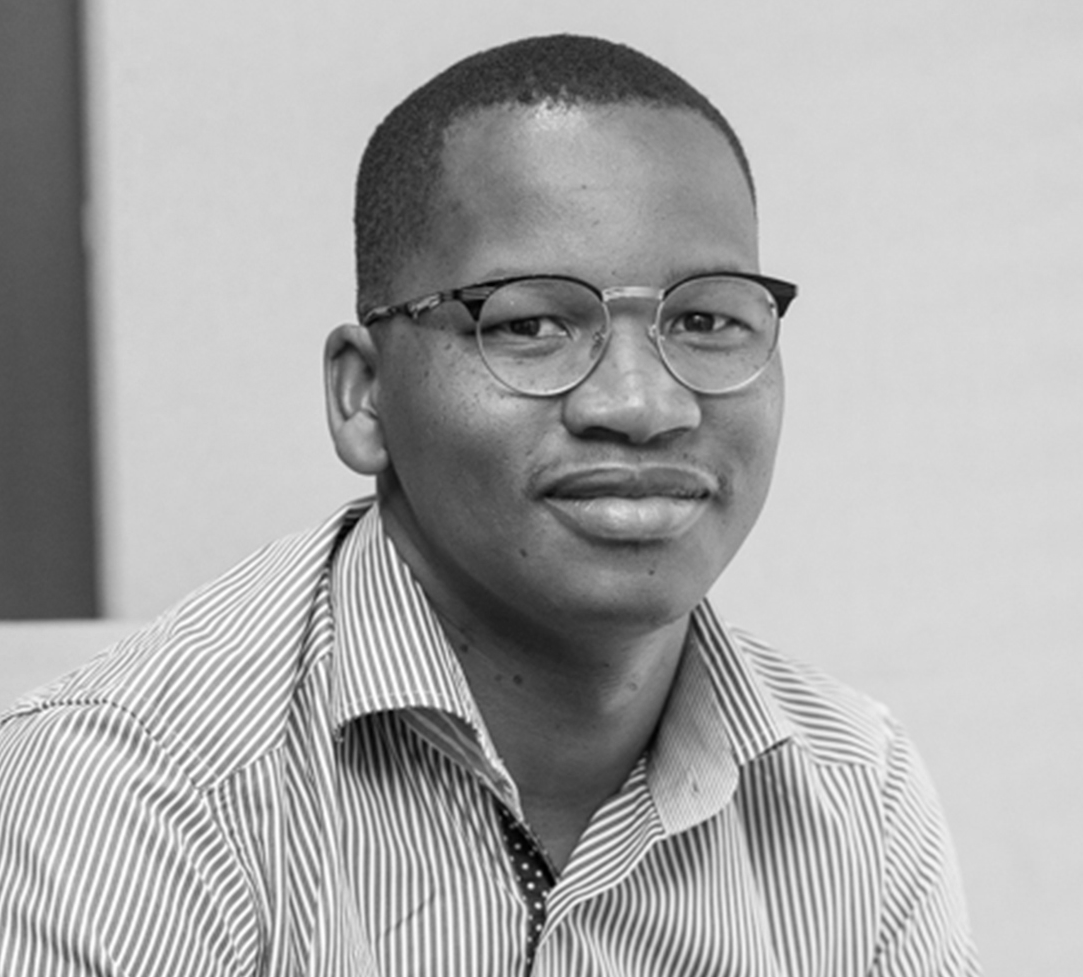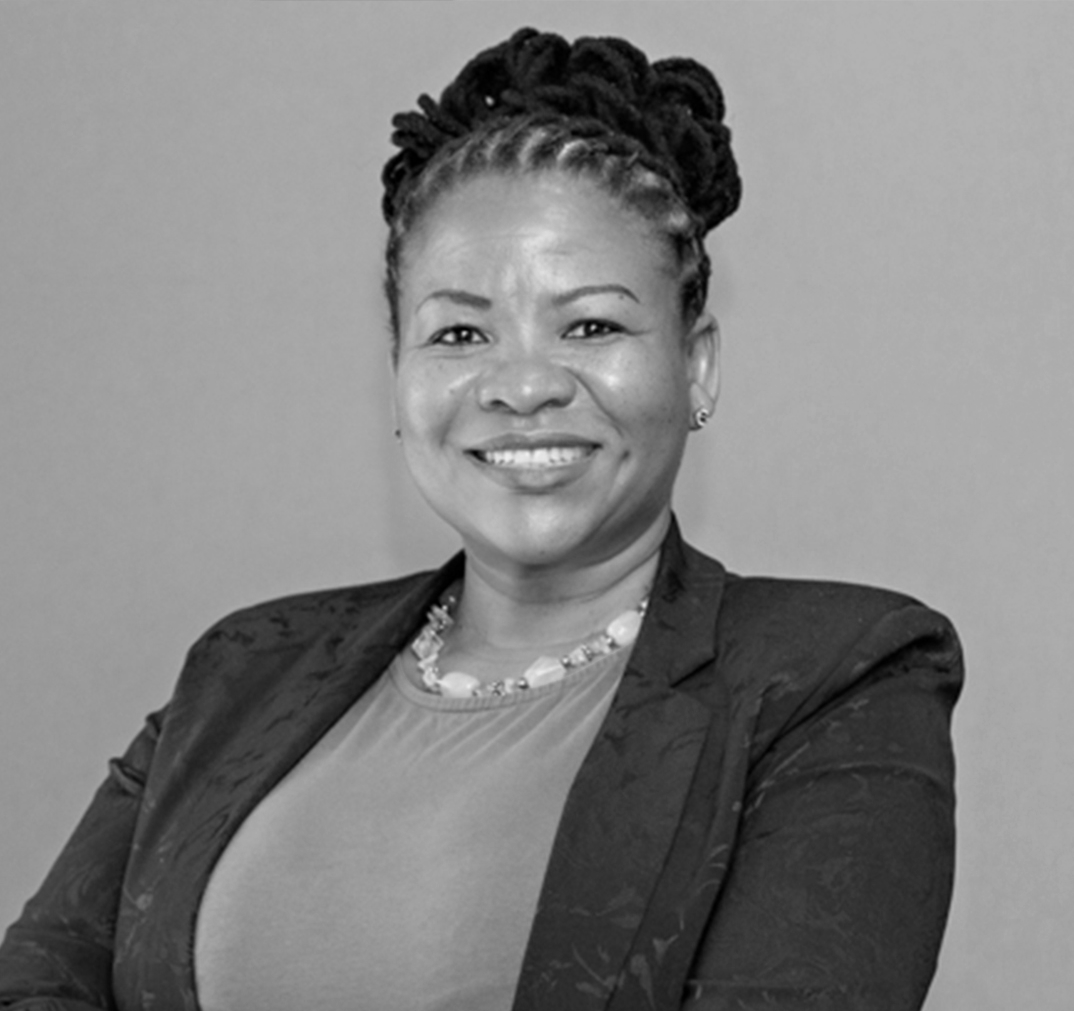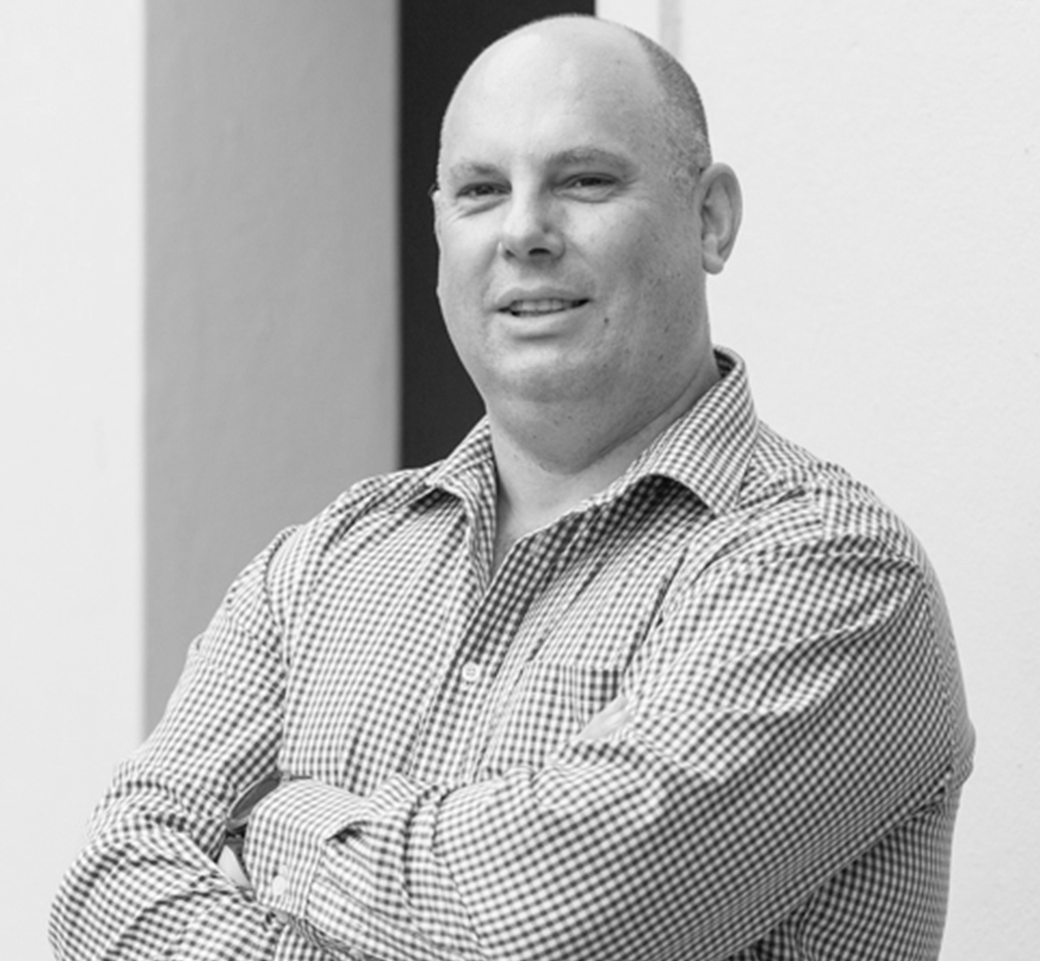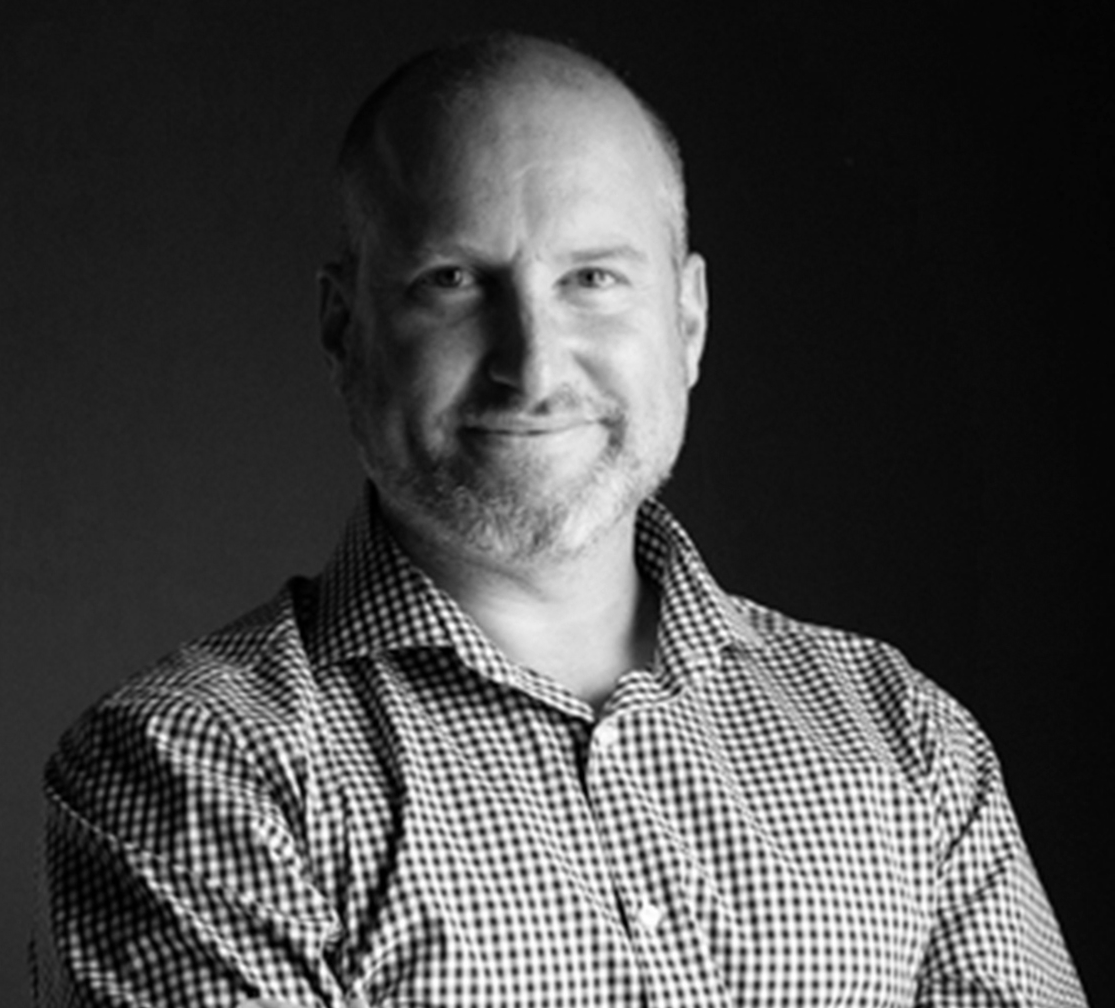6: Brett Tromp
CFO: Discovery Health
As CFO of a dominant player in the health insurance market, Brett Tromp, not only focuses on financial matters but he emphasises the importance of staff motivation and well-being.

CIARAN RYAN: This is CFO Talks and today we are delighted to welcome Brett Tromp, the chief financial officer for Discovery Health, South Africa’s largest health insurer since 2007. Discovery’s growth story has been a phenomena that has and will continue to be studied in business colleges for years to come. Last year Discovery recorded a 17% growth in normalised operating profit to more than R8 billion and grew its core new business by 10%, which is quite an achievement in a rather stagnant economy. Brett currently also operates as chief executive of Discovery’s Healthcare Services division, which houses its pharmacy, wellness and homecare business. He’s lived and worked in the United States and has audited for major Fortune 500 companies like General Electric. Brett regularly deals with governments in Africa and is spearheading change in corporate reporting to include health metrics in company reports, both in South Africa and the Southern Africa region. He has a passion for leadership and ensuring that people reach their full potential and he’s a regular speaker locally and internationally. In 2015 Brett was named as South Africa’s Young Chief Financial Officer of the Year, as well as receiving the award for the best-performing high finance team in South Africa. That’s quite a list of achievements, so we’re delighted to welcome Brett Tromp, chief financial officer of Discovery Health, welcome, Brett. Can we start off with a little bit of history about yourself, where you went to school, where you studied, are you a Joburg boy and how did you arrive at Discovery Health?
BRETT TROMP: Thank you for the privilege to speak today, yes I was born and bred in Johannesburg, I love the city, love the vibe, I am actually deeply entrenched in city life and what I really believe grows economies. I went to school through the public school system at the time; I finished my high schooling at Northcliff High. Finished when I was 17 and got offered a bursary for sport to go to St Stithians College, so I did a post-matric at St Stithians and in that period you could do some varsity subjects and then went through UJ, did my honours…
CIARAN RYAN: UJ being the University of Johannesburg.
BRETT TROMP: Then finished at Wits and then through KPMG did my articles and a short stint overseas with KPMG. My wife was also a qualified chartered accountant, we went to the US for six months, came back and basically just found Discovery via various contacts and been there ever since.
CIARAN RYAN: Where were you in the United States?
BRETT TROMP: We were in a place called Cleveland, Ohio.
CIARAN RYAN: Been there a few years ago.
BRETT TROMP: The old steel industry, probably not the number one pick of cities to be in, we went in winter, it was very cold but it was a great learning experience, especially at that age.
CIARAN RYAN: What year was that?
BRETT TROMP: It was 2001 actually. So when 9/11 happened.
CIARAN RYAN: So you were working there with KPMG and you were doing audits including that of Fortune 500 companies. Okay, so for those who might not know, and we do have people internationally who would listen to this, give us a walkthrough Discovery Health, when it started, how it came from nowhere to dominate the health insurance space in South Africa.
BRETT TROMP: Discovery Health was the brainchild of Adrian Gore and Barry Swartzberg back in 1992, obviously in a time in our country where many people were sceptical of opening businesses, they saw a great opportunity. They saw that there was a gap in the insurance market for a product called medical savings accounts, so actually putting the power of health insurance into the consumer’s hands, rather than allowing the administrator or the business to control it, they gave the power to the consumer and that was almost the birth of health consumerism to some degree. What I think was and still is the most amazing story of Discovery is their deep purpose. So Adrian always talks about Simon Sinek’s what, why and how, and actually finding your why. What really drives Discovery is our why, which is to make people healthier and enhance and protect their lives. How we do that is through our shared value insurance model and what we do is the insurance businesses or the financial service businesses that we do. So what really drives us is our why, why are we here and every product that we do focuses on that.
CIARAN RYAN: It is quite a success story, Discovery Health in the last 20 years coming out of literally nowhere to be the dominant player and I think the market share is in excess of 50% and probably quite a lot more than that, not so?
BRETT TROMP: Ja, it’s something that I think as South Africans we can be proud of because it’s a brand that’s gone throughout the world. In South Africa we do have the lion’s share of the market, 50% in the open scheme market and probably over 30% in the total market. There are nine million insured lives, some of those are closed schemes and some of them are open and we’ve got about three-and-a-half million lives of those nine million.
CIARAN RYAN: Just define what is an open and a closed scheme?
BRETT TROMP: An open scheme is a scheme, for example, like Discovery Health, where anybody can join, any member can join the scheme. A closed scheme, for example, would be something like Bankmed that services the banks or SA Breweries has a scheme and it’s then only open to the employees of that employer.
CIARAN RYAN: Right, I think we’ll come back to this issue of health insurance in South Africa because there’s a huge number of people who cannot afford health insurance in this country, so there’s big discussion about starting a national health insurance scheme, let’s get back to that. But I want to talk to you as a CFO and let’s cover that ground quickly, I’m quite interested to hear about your engagements with governments in Africa on the subject of corporate reporting, particularly around the issue of health metrics, can you just explain a little bit about that.
BRETT TROMP: A few years ago I worked on a concept that I was fortunate enough to go and present to the SADC Health Conference in Zimbabwe…
CIARAN RYAN: SADC is the Southern African Development Community.
BRETT TROMP: That’s it and the 15 health ministers, there are 15 countries that form part of that community and at that time I got to present around, including metrics in reporting, specifically in listed companies, which would ultimately make listed companies take more responsibility around the health of their employees and obviously that sat very well within governments because unhealthy people who are uninsured or uninsured outside of the private market have to go to the public sector and that’s a big burden for them. So we’ve got a big plan, we’ve got SAICA driving it at the moment with me, we are hopefully going to roll out something fairly soon and Discovery has already started to include some metrics. But obviously it’s like anything, like the environmental metrics, the social metrics, there’s an initial – I wouldn’t say barrier to entry – but people resisting because it’s change and we hope that we’ll get over that and it will become mainstream, no one is doing it around the world, so we’re really quite excited that we can pioneer this in South Africa and show the world that companies shouldn’t only be worried about the environment and social issues but also about the health and how do they improve the health of their employees, since they spend most of their time at work.
Having a healthier workforce improves productivity
CIARAN RYAN: Just give us an idea, give us one or two of these metrics that you came up with.
BRETT TROMP: Some of the metrics will be very straightforward, firstly we will start a lot with self-reporting and that can be subjective at times but, for example, does your employer make you aware of health risks, are you offered, for example, a wellness day and during those wellness days there’s a set of tests that we do. So very simply we check your blood pressure, we check your BMI, your cholesterol and stuff like that. It’s all about saying, look, we want to identify if there’s a risk and we also want to make it accessible to you. So we’ll build off that and I really feel strongly that companies should take this responsibility, they’re at work for such a long period of time and this is such a great opportunity to show that you really care. As the world is moving, most people, they say up to 75% now, die due to diseases of lifestyle, so that’s poor eating, smoking, lack of exercise. So a lot of it is self-induced, you’re not dying from communicable diseases, although in Africa that’s still a problem but around the world people are dying from diseases that they cause to themselves. So you want companies to have healthcare eating options, you want companies to have gyms, you want companies to make their employees aware of their key health measures and so that’s the thinking behind that, obviously we think it will add value. Then on the other side what we are trying to show the companies, and we’ve got quite a few examples in this space, is how it improves productivity, so having a healthier workforce, absenteeism, presentism, there’s a benefit for you, this isn’t just an outcome that will benefit you. I’ll end it there but there are lots of studies that show, they’ve done longitudinal studies over many years of companies that have invested in this and their performance against stock markets has outperformed those that haven’t.
CIARAN RYAN: That’s interesting, let’s talk about your role as chief financial officer at Discovery Health and the fact that your team won an award for the best high-performing finance team in South Africa, how did you manage that?
BRETT TROMP: I’ve been fortunate to have great leaders and one of the CEO’s that I worked for, who’s now a CEO in the UK, Neville Koopowitz, he gave me a bit of advice once, he said to me, always hire people who are better than you, do not fear talent, always hire people who are better than you in all of your roles, they will thrive and you will look good. I think I have taken that, so that’s one of the things to look for in people…don’t look for people at the level you are at because that’s where you’ll stay. So look for great people and then obviously building a team takes time and it’s an effort and it needs leadership but it’s very rewarding once you get it right. Then the usual things, let people find their strengths, let people work, give them the freedom to work, look for innovative ways, reward them, write notes and all the stuff that you need to do that takes time, it just takes effort and then they just perform.
CIARAN RYAN: How has the role of chief financial officer changed over the years? We see the CFO role being wrapped up in more and more regulations each year, what with amendments to the Audit Bill, NOCLAR and so on. If one looks at some of the corporate scandals that have erupted in South Africa in recent years perhaps that makes sense, so what’s your take on all of this and do we need more regulation?
BRETT TROMP: Look, it has got more complex, unfortunately the profession has been tainted by a few bad apples but our core job is to give investors comfort that the money that they’ve invested in our business is being used the most efficiently and in a productive way. So that’s the job and obviously you can’t just rely on that and the ethics of that but you need to have regulation to ensure that that does transpire. But obviously overregulation comes at a huge cost, it comes at a huge time consumption and I don’t think it adds that incremental value, it adds a little bit of value but it takes you away from the key job. I think it’s needed but at the end of the day what our profession stands for is that we produce people who live by these values and we shouldn’t taint them, and we really need to be a lot harder on people who do break these values.
CIARAN RYAN: We’re joined in the studio as well by Nicolaas van Wyk, who’s the chief executive of the South African Institute of Business Accountants. Nicolaas, you’ve got a question for Brett on this?
NICOLAAS VAN WYK: The CFO plays such an important and crucial role in any large corporate, like you have just explained, but of late we have seen a number of CFO’s from Eskom, Bosasa and all the Gupta-related companies, so at some point a CFO was involved in the corruption, made the decision. Why is it happening all of a sudden now, so that’s the first question? Secondly, is there something that the profession can do to protect CFO’s? Do they feel bullied by CEO’s? Why do they feel that they have to participate in this decision-making, what advice can you give us?
BRETT TROMP: I think it’s been exposed far more now and, yes, I think what’s happened in our country is that people follow leaders and the leadership at the top sets the example. So when you see your boss doing it and your colleagues doing it you almost forget your values, you almost justify it as being correct. So that is just sad. Potentially it should come down more into the training. So, for example, I remember doing my articles and studying to be a CA, ethics, learning that and knowing what I was signing up for, it was like the doctors’ Hippocratic Oath, that’s my oath and we signed a pledge, an oath to SAICA, to do it and that’s important to me. I think maybe you have to keep reminding CFO’s continuously what they’ve signed up for. Don’t sign up to be a professional person if you can’t subscribe to these values and ethics. I don’t feel we are bullied, I think CFO’s have always had a place in the business where they are the ones who are traditionally seen as saying no. So I don’t think that’s changed, they have always had that backbone, no you shouldn’t do this, you shouldn’t do that, I think it’s become accepted. So when things become accepted and everyone is doing it, per se, then I think they just follow it. That’s my view.
A CFO’s role is people-oriented
CIARAN RYAN: Can you give us a sense of where do you spend most of your time, is it in preparation of financial reports, is it people management or is it regulatory issues, where are you spending your time?
BRETT TROMP: I think it’s mixed across both but for me I probably spend most of my time with people, so I think leadership and running business and getting people to perform under you and with you. I think it doesn’t matter what type of people they are, if you’ve got good people you’re working on trying to ensure that they are stimulated and that they are not leaving, if you’ve got middle people you’re trying to get them to the next level and then you’re dealing with non-performers. So I think when I go home at night I say to my wife that I love my job but I think the people part is what takes the most [time] because that’s where you get the value. Obviously you’ve got to balance it, you’ve got to do the statutory work, you have to do the strategy but your people deliver on your strategy.
CIARAN RYAN: Nicolaas, you’ve got another question.
NICOLAAS VAN WYK: How did you develop these additional skills because I don’t presume that if you qualify as a professional accountant or a CA then you don’t have those skills, how did you develop them in your career?
BRETT TROMP: I think I looked at traditional CFO’s and I looked at what they did and I said that I didn’t want to be like that. I thought to be different as a CFO I have to have different skills and where did I see CFO’s lacking, I don’t want to say lacking but less developed skills and I saw it a lot in leadership and training and developing people. So I have spent lots and lots of time reading, studying, I wanted to try and become niche in that market, which I think to some degree I have. In the SAICA magazine I am their leadership advisor. So I took something that I saw was lacking and went and developed it. So it was important to me and the reality is you get results, you get the best out of people, the more I get out of these people so they grow and it works for the business.
CIARAN RYAN: Having said that, what gives you the most headaches in your job?
BRETT TROMP: I think in any CFO job reporting, regulation, these are all needed, they are good but it’s very hard to find anyone who says I just love this and I love going to another board meeting and audit compliance and risk compliance but that goes with it. I think when you see the bigger picture and that’s important and who you are actually working for and managing the money for them. I would say the hardest part of the job, it’s not the one that you jump out of bed for every morning, you jump out of bed to see business grow and people grow.
CIARAN RYAN: Are you optimistic about South Africa and the potential for growth in the health insurance sector, bearing in mind the government seems to be in favour of pushing through a national health insurance scheme. I was told not so long ago by one of our chief economists in this country that there is a thing in this country called hospital tourism, where people are coming from Congo and Zimbabwe and places like that and they just go straight into our public sector hospitals for free and this is a huge burden on the state because nobody is going to be turned away if they are sick. So it does create a worry as to who is going to carry the burden, who is going to pay for this ultimately?
BRETT TROMP: It’s a very good question, firstly, on South Africa, yes, I am very bullish, I work for a company that is very proudly South African and very pro South Africa. Adrian often puts up this slide that just shows since 1994 all the things that we’ve been through and we always get through them, South Africa somehow, we muddle our way through but we get through. Now it’s the Eskom whatever but we always manage to get through, we are a very resilient and strong population. There’s actually a book that I have read called Factfulness by Hans Rosling and it talks about how we are inherently wrong about the world. Adrian put up a slide at our leadership conference and he gave ten facts of how much better South Africa really is in all areas, against crime, education, housing, we might not be where we should be but everybody says we are worse off. But actually the facts are not that and this is what the book, Factfulness, says, look at the facts, don’t look at emotion, don’t look at opinion. South Africans are very good at having an opinion about something but most of us are actually wrong, we make comments that are not true. So looking at factfulness and yes we are very bullish about South Africa. We’ve got big challenges, we’ve got to grow the economy but we are a great nation with big financial institutions, big financial stock markets, we’ve got lots to be proud of. So, yes, I firmly believe. On the NHI, absolutely, it’s difficult to find anyone who says giving healthcare to everyone is wrong. It’s crazy to say that, it’s unethical and wrong. Yes, we need a national health insurance system. I think the difficulty and the challenge, as you mentioned, is how do we pay for this, we have a finite number of taxpayers, how do we find the finances for it. So those are some of the big challenges and obviously we’ve got to fix what’s broken first before we can roll out. On medical tourism, yes you are right, that is an issue and that shouldn’t be allowed. On the private sector side there are a lot of people who actually tour to South Africa because you get some of the world’s best private health insurance for a fraction of the cost that you would get it in Europe or the US. So there’s a lot of that that happens but that is obviously tightly controlled.
Funding the proposed NHI
NICOLAAS VAN WYK: I read last week that the government of Denmark had to resign because they couldn’t cover their medical costs for all their citizens, it just spiraled out of control. There are also lots of stories from the nationalised health insurance in the UK that they can’t fund all the costs. So being involved in the new medical cover that we’re planning for SA, how do we not fall into that same trap?
BRETT TROMP: I think you have to understand that if you look around the world, if you look at the UK, for example, the private medical insurance is growing there, so people are moving away from the NHS to go there because you get better service and various other things. So in South Africa what we have got to be very careful of – and not trying to sound like we’re protecting Discovery’s businesses – you cannot break a very strong private healthcare to try and develop something else. You’ve got to work very tightly together and to make this work you’ve got to use the skills and the pockets, whether they’re in the public or private sector, the best of both to deliver this system, you cannot do it in lieu of each. So we’ve really got amazing people in this country who develop this stuff and we mustn’t isolate pockets for political agendas. What’s best for the people, how do we deliver it and it’s a give and take. We understand in the private sector that we’re going to have to give something, whatever that might be, for a better system for all.
CIARAN RYAN: Just explain what is the current thinking about how this is going to be funded?
BRETT TROMP: It’s tricky, we are not really certain with Minister Mboweni now how he perceives it to be funded. The funding either comes from personal income tax or it comes from VAT or it comes from additional taxes on top of that, which we know the public is so stretched already. So you have to take the public sector budget that you’ve got and find more to deliver this. Some of the studies we’ve done is you need three or four times what that public sector budget actually is to do a proper working NHI system. Then you’ve got to understand it’s highly complicated, you’ve got to have cards and records and electronic health records and how do you manage the people going in and the systems and workflows and patient management systems…
CIARAN RYAN: And the suppliers.
BRETT TROMP: …and the suppliers and we are already short of doctors and those types of resources and how do you manage that. So it’s a noble and a great thing to do but it’s highly complicated and there are big questions around where will the money come from.
CIARAN RYAN: Who were the big influences on your life and on your career? Were there any life-changing moments or books that you read, people who you met that set you on the path that you now find yourself on?
BRETT TROMP: For me really it’s been my family, I’ve got an amazing wife, who is also a CA, but she looks after my kids now, it was her calling for the time. I am also deeply religious from a Christian point of view and that drives my morals and what I believe. I am very value-based and Discovery’s values talk to mine, there’s no perfect company but I feel stimulated in doing stuff that helps people. So what we do I think helps people really in a time of need in the health insurance business and that really resonates with who I am. I think if I had to choose one book, I read a brilliant book called The Worry Trick by David Carbonell PhD and it was a brilliant way of understanding how human beings worry, everybody worries. A lot of it is around the ‘what ifs’, we get up in the morning and we say what if this happens, what if that happens and the studies show that 99.99% of ‘what if’ is all fake. But we all get up and worry so much, so it was really just decluttering this and stop being concerned with things like what if Eskom falls over, it’s probably never going to happen. So that’s really helped me to focus my energy more on positive things and doing my job, rather than thinking what if this and what if that. So it was a brilliant book in my life.
CIARAN RYAN: Thanks very much for that. That was Brett Tromp, chief financial officer of Discovery Health.

